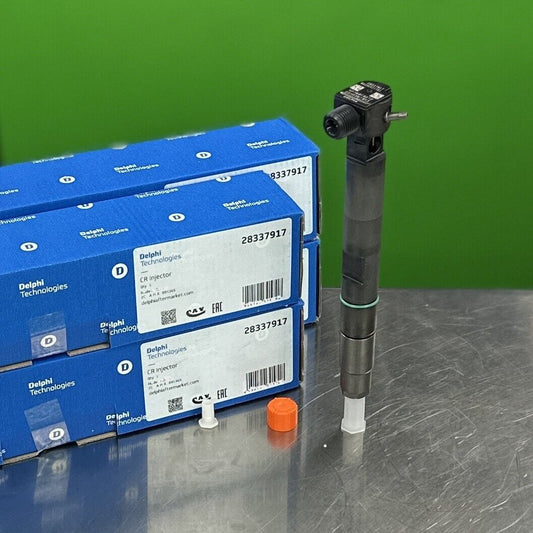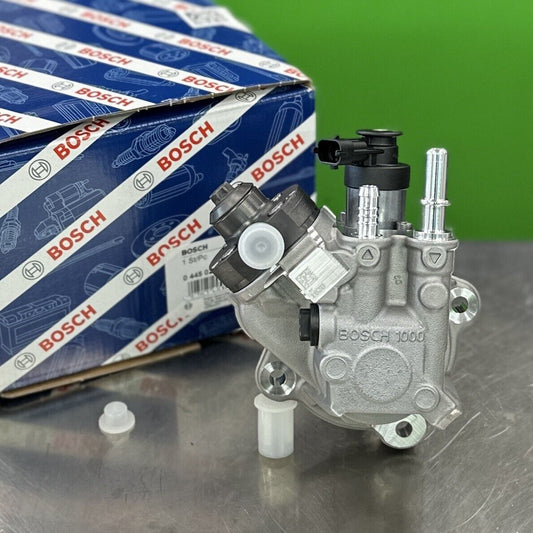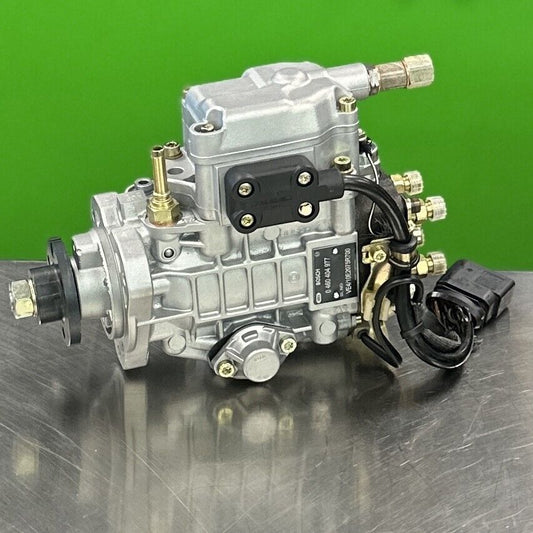Why Diesel Outlasts Gasoline in Extreme Driving Conditions
When it comes to enduring the rigors of extreme driving conditions, diesel engines stand out as the champions. Their ability to outlast gasoline engines in challenging environments is a testament to their robust design and superior performance. But what exactly sets diesel engines apart and allows them to thrive where others falter?
One of the key factors contributing to diesel's longevity in extreme conditions is its inherent durability. Diesel engines are built to withstand the toughest challenges, from high temperatures to heavy loads, without breaking a sweat. This resilience makes them the go-to choice for prolonged use in demanding situations, where reliability is non-negotiable.
Moreover, diesel engines offer unmatched efficiency and power, making them ideal for navigating treacherous terrains and demanding scenarios. With their ability to deliver more torque and better fuel economy than gasoline engines, diesel powertrains excel in providing the necessary muscle to conquer even the most unforgiving environments.
As technological advancements continue to enhance diesel engine performance, these powerhouses have only become more formidable in extreme driving conditions. Innovations in diesel technology have not only improved efficiency and power output but also prioritized environmental friendliness, ensuring that diesel remains a sustainable choice for the future.
Diesel Engines vs. Gasoline Engines
When comparing diesel engines to gasoline engines, it becomes evident that each has its own set of strengths and weaknesses that make them suitable for different driving conditions. Diesel engines are known for their robust construction and ability to withstand extreme pressures, making them ideal for heavy-duty applications. On the other hand, gasoline engines are typically lighter and more responsive, making them better suited for everyday driving scenarios where quick acceleration is crucial.
One of the key differences between diesel and gasoline engines lies in their combustion processes. Diesel engines rely on compression ignition, where air is compressed to a high temperature to ignite the fuel, leading to better fuel efficiency compared to gasoline engines that use spark ignition. This difference in combustion processes contributes to the higher thermal efficiency of diesel engines, making them more suitable for long-distance driving and heavy loads.
Moreover, diesel engines are known for their impressive torque output, which is crucial for navigating challenging terrains and towing heavy loads. The inherent design of diesel engines allows them to produce more torque at lower engine speeds, providing the necessary power to overcome obstacles in extreme driving conditions. On the other hand, gasoline engines are typically rev-happy, delivering power at higher RPMs, which may not be as effective in demanding situations.
When it comes to fuel efficiency, diesel engines have a clear advantage over gasoline engines, especially in extreme driving conditions. Diesel fuel contains more energy per gallon than gasoline, allowing diesel engines to travel longer distances on less fuel. This increased fuel efficiency is particularly beneficial in remote areas or off-road environments where refueling stations may be scarce, providing a crucial advantage to vehicles equipped with diesel engines.
Benefits of Diesel in Extreme Conditions
When it comes to operating in extreme conditions, diesel engines offer a range of benefits that set them apart from gasoline engines. One of the key advantages of diesel engines is their superior torque, which provides better pulling power and acceleration, making them ideal for challenging terrains and demanding situations. This increased torque allows diesel vehicles to navigate steep inclines, rough roads, and heavy loads with ease, ensuring optimal performance in extreme driving conditions.
In addition to their impressive torque, diesel engines are known for their exceptional fuel economy. Diesel fuel contains more energy per gallon than gasoline, resulting in greater efficiency and longer driving range. This fuel efficiency is particularly advantageous in remote areas or off-road environments where refueling options may be limited. Furthermore, diesel engines are designed to operate efficiently at low speeds and under heavy loads, making them well-suited for prolonged use in extreme conditions without compromising performance.
Another significant benefit of diesel engines in extreme conditions is their resilience to wear and tear. Diesel vehicles are built to withstand harsh environments, high temperatures, and heavy usage, ensuring durability and longevity even in the most challenging circumstances. This robust construction not only enhances the engine's lifespan but also reduces maintenance costs over time, making diesel engines a cost-effective choice for drivers who frequently encounter extreme driving conditions.
Moreover, diesel engines are known for their reliability and consistency in performance, even under extreme stress. Whether traversing rugged terrain, towing heavy loads, or operating in extreme temperatures, diesel engines maintain their power and efficiency, providing drivers with the confidence and capability to tackle any driving challenge. This reliability is a key factor in why diesel engines outlast gasoline engines in demanding situations, making them the preferred choice for many drivers who require dependable performance in extreme conditions.
Durability and Longevity
When it comes to diesel engines, durability and longevity are key factors that set them apart from gasoline engines, especially in extreme driving conditions. Diesel engines are built to withstand the rigors of heavy loads, high temperatures, and prolonged use without compromising performance. This resilience makes them ideal for extended operation in challenging environments where gasoline engines may struggle to maintain efficiency and reliability.
One of the primary reasons for the durability of diesel engines is their robust construction and internal components. Diesel engines are engineered with heavier-duty materials and components, allowing them to handle the stress of constant operation under demanding circumstances. This durability translates into a longer lifespan for diesel engines compared to gasoline counterparts, making them a preferred choice for applications requiring sustained performance.
Moreover, the longevity of diesel engines is also attributed to their efficient combustion process and lower operating temperatures. Diesel fuel burns at a higher temperature than gasoline, resulting in a more complete combustion cycle and reduced wear on engine parts over time. This efficiency not only enhances the engine's longevity but also contributes to lower maintenance costs and fewer breakdowns during prolonged use in extreme conditions.
In addition to their durability and longevity, diesel engines are known for their resilience to wear and tear, thanks to advancements in technology and engineering. Modern diesel engines are equipped with sophisticated filtration systems, improved lubrication mechanisms, and advanced cooling systems that enhance their performance and protect them from premature deterioration in harsh environments.
Overall, the combination of durability, longevity, and resilience makes diesel engines the preferred choice for applications that demand consistent performance in extreme driving conditions. Whether it's powering heavy-duty vehicles in rugged terrains or operating machinery in remote locations, diesel engines continue to outlast gasoline engines when it comes to reliability and longevity under challenging circumstances.
Efficiency and Power
When it comes to efficiency and power, diesel engines truly shine in extreme driving conditions. Unlike gasoline engines, diesel engines are known for their ability to deliver more torque, which is crucial for navigating challenging terrains and situations effectively. The higher torque output of diesel engines allows vehicles to handle steep inclines, heavy loads, and rough terrains with ease, making them the preferred choice for off-road adventures and heavy-duty applications.
Moreover, diesel engines are renowned for their exceptional fuel efficiency compared to gasoline engines. This efficiency stems from the higher energy content of diesel fuel and the way diesel engines combust fuel. Diesel engines operate at a higher compression ratio, leading to more complete combustion of fuel and, consequently, better fuel economy. This not only translates to cost savings for drivers but also reduces the frequency of refueling stops, which can be crucial in remote or challenging environments.
Furthermore, the power output of diesel engines contributes significantly to their performance in extreme conditions. The robust construction of diesel engines allows them to generate ample power even at low speeds, making them ideal for heavy hauling, towing, and other demanding tasks. This power delivery is essential for maintaining momentum in challenging off-road situations or when traversing rugged terrain where consistent power is necessary.
Overall, the combination of efficiency and power in diesel engines makes them the preferred choice for drivers who regularly face extreme driving conditions. Whether it's the need for reliable torque, exceptional fuel economy, or consistent power delivery, diesel engines continue to outperform gasoline engines when the going gets tough.
Technological Advancements in Diesel Engines
Technological advancements in diesel engines have revolutionized the way these powerhouses operate in extreme conditions. Engineers and manufacturers have continuously pushed the boundaries of innovation to enhance performance, efficiency, and sustainability. One notable advancement is the integration of common rail fuel injection systems, which allow for more precise control over fuel delivery, resulting in improved combustion efficiency and reduced emissions.
Furthermore, the introduction of turbocharging and supercharging technologies has significantly boosted the power output of diesel engines without compromising fuel efficiency. By compressing incoming air and increasing its density before entering the combustion chamber, these technologies enable the engine to generate more power, especially crucial when navigating challenging terrains or hauling heavy loads.
Another key advancement in diesel engine technology is the implementation of exhaust gas recirculation (EGR) systems and diesel particulate filters (DPF) to meet stringent emission standards. EGR systems recirculate a portion of exhaust gases back into the engine to reduce nitrogen oxide emissions, while DPFs trap and remove harmful particulate matter from the exhaust, ensuring cleaner emissions and environmental friendliness.
Moreover, the development of electronic engine control units (ECUs) has allowed for more precise monitoring and optimization of engine performance in real-time. ECUs continuously analyze various parameters such as engine speed, temperature, and load to adjust fuel injection timing and other critical functions, maximizing efficiency and power output.
Additionally, advancements in materials and manufacturing techniques have led to the production of lighter yet more durable engine components, enhancing overall reliability and longevity. High-strength alloys, advanced coatings, and improved machining processes have all contributed to making modern diesel engines more robust and capable of withstanding the rigors of extreme driving conditions.
Frequently Asked Questions
-
What makes diesel engines more durable than gasoline engines in extreme driving conditions?
Diesel engines are designed to withstand higher temperatures, heavier loads, and prolonged operation, making them more resilient in challenging environments.
-
How do diesel engines compare to gasoline engines in terms of fuel efficiency and power output?
Diesel engines typically deliver more torque and better fuel efficiency than gasoline engines, providing the necessary power to navigate demanding terrains effectively.
-
What are the specific advantages of using diesel engines in harsh environments?
Diesel engines offer better torque, improved fuel economy, and enhanced durability, making them ideal for operating in extreme conditions with reliability.
-
What recent technological advancements have been made in diesel engine technology?
Recent innovations in diesel engine technology have further improved performance, reliability, and environmental friendliness, enhancing their capabilities in extreme driving conditions.



